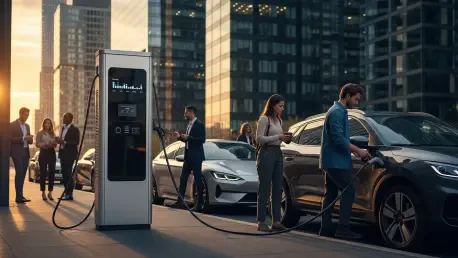

I'm thrilled to sit down with Christopher Hailstone, a renowned expert in energy management and renewable energy, whose deep insights into grid reliability and electricity delivery have shaped sustainable practices across industries. With a focus on innovative policies like Maharashtra's

In a world where oil flows like the lifeblood of economies, what happens when major powers decide to sever a critical artery of a geopolitical adversary? The European Union and the Group of Seven (G7) nations are on the brink of a seismic decision: banning maritime services for Russian oil exports.

Imagine a world where the heavy rumble of cross-border trucks no longer signals a spike in carbon emissions, but instead represents a step toward a cleaner, greener future. In Southeast Asia, this vision is becoming reality as a global logistics leader takes a bold leap into sustainable

I'm thrilled to sit down with Christopher Hailstone, a seasoned expert in energy management and utilities, whose deep knowledge of grid reliability and energy delivery offers a unique perspective on the dynamic world of natural gas and LNG exports. With years of experience in the industry,

What does it take to transform a nation’s future while battling the twin crises of energy demands and water scarcity? In Malaysia, the answer lies in a daring blend of innovation, policy, and grit. Picture a country racing against time to power its cities with clean energy and secure every drop of

Imagine a nation on the frontline of geopolitical tension, where the hum of high-voltage power lines is as critical to security as the boots on the ground. Poland, a steadfast NATO ally, faces escalating threats to its energy infrastructure amid regional unrest. With drone incursions and sabotage

Imagine a bustling city where delivery trucks hum quietly on electric power, slashing emissions while weaving through traffic with uncanny precision. This isn’t a distant dream but a reality being shaped today by the invisible force of data. As the world pushes toward sustainability, fleet

Imagine a vast reservoir in Gujarat shimmering under the sun, not just reflecting light but harnessing it to power thousands of homes. This isn’t a distant vision but a tangible reality taking shape through the innovative efforts of KPI Green Energy Ltd. As India grapples with the dual challenge of

Imagine a world where choosing to drive cleaner, greener, and quieter with an electric vehicle (EV) comes with a hidden cost—a tax that hits harder than what gas-guzzling car owners pay for the same stretch of road. As EVs gain traction as a cornerstone of sustainable transportation, governments

Imagine a landscape where towering wind turbines and sprawling infrastructure projects stand side by side with thriving populations of rare wildlife, a delicate balance that’s often hard to strike. On November 21, the U.S. Fish and Wildlife Service (FWS) and the National Marine Fisheries Service
ITCurated uses cookies to personalize your experience on our website. By continuing to use this site, you agree to our Cookie Policy